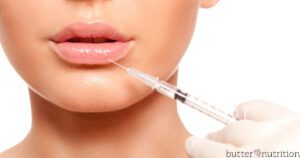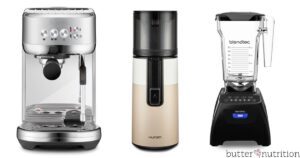
If you were a car, would your gas tank be empty or would your check engine light be on?
Or even worse, would your dash be a light show?
What would your body be trying to tell you?
Here are the five most common nutrient deficiencies I see in my clients. Chances are, they affect you too...
1. Magnesium (mineral)
Tell-tale signs of deficiency: leg cramps, muscle twitches, anxiety, insomnia, and constipation
Why you need it: magnesium is needed as an important cofactor for over 300 enzyme reactions in the body. Not only is magnesium lacking in our diet today (due to soil depletion and processed foods), but your body also wastes magnesium under stress. Unless you live a stress-free life, you could use some more
How to get enough: fresh fruits, unprocessed grains, Epsom salt baths, and my personal favorite: magnesium oil
My favorite testing method: Hair Tissue Mineral Analysis
2. Omega3s (fatty acid)
Tell-tale signs of deficiency: dry skin or hair, fatigue or low energy, poor memory or focus, mood swings or depression, joint stiffness or inflammation
Why you need it: brain and cognitive health, reduces inflammation, supports heart and eye health, healthy skin and hair, important for fetal/infant development
How to get enough: fatty fish (salmon, mackerel, sardines), algae-based supplements (vegan DHA/EPA), chia, flax, hemp seeds, walnuts, omega-3 enriched eggs or dairy, fish oil supplements if needed
My favorite testing method: Fatty Acid Testing
3. Zinc (mineral)
Tell-tale signs of deficiency: skin problems, weak immune system, stretch marks, poor detoxification, weak bile flow
Why you need it: proper immune system function, the production of hemoglobin, reproduction, as well as growth and development
How to get enough: animal protein, particularly red meat
My favorite testing method: Hair Tissue Mineral Analysis coined with a plasma zinc blood lab
4. K2 (fat soluble vitamin)
Tell-tale signs of deficiency: crooked teeth, cavities, osteoporosis, cancer, and kidney stones
Why you need it: K2 is needed for a healthy heart, strong bones, and brain by telling your body where to put calcium! Without it, your body can deposit calcium to undesirable places (like the arteries and soft tissues instead of the teeth and bones. Yikes!)
How to get enough: vitamin K2 can be produced internally by your body via your good gut bacteria. If you have gut issues, your internal production might be lower. Foods like egg yolks, aged cheeses, natto, butter, and high vitamin butter oil can help you top off your intake while you work on changing your gut environment.
5. Potassium (mineral)
Tell-tale signs of deficiency: acne, weakness, tiredness, or cramping in arm or leg muscles, numbness and/or tingling, constipation, excess water consumption, depression, nausea or vomiting, edema, fatigue, insomnia, nervousness, mental impairment, abdominal cramping and/or bloating, fainting due to low blood pressure, heart palpitations (irregular heart beat)
Why you need it: it's critical mineral in the body for maintaining healthy function of cells, tissues, and organs. Potassium is also an electrolyte, meaning it conducts electricity along with sodium, chloride, calcium, and magnesium in the human body. Heart, digestive, and muscular function rely on this key nutrient. In addition, healthy hormonal balance depends on potassium because it helps speed the conversion of cholesterol to progesterone.
How to get enough: the Recommended Dietary Allowance (RDA) for potassium is 4,700 mg, a value your healthy eating habits don't come close to! Get ideas on how to get more potassium-rich foods into your diet here.
My favorite testing method: Hair Tissue Mineral Analysis
You might notice I don't recommend meeting nutrient deficiencies with supplements unless you have testing indicating a need for a supplement, but instead with real food. That's because, for a large portion of the time supplements can actually be counterproductive.
Do you have any nutrient deficiencies? Please share in the comments!
PIN IT:






Vita @ VitaLivesFree says
A very useful blog post! I've recently realized I'm really low on Vitamin A. I've always had cavities, red bumps on the back of my arms and low energy. When I started reading about those things, I realized that I've more or less eaten none of the real Vitamin A sources in my life. I grew up thinking that carrots were the main source. No wonder why my health was deteriorating with each year. I've recently started drinking bone broth, taking cod liver oil and eating butter - let's see if it helps. By the way, I think pastured butter is one of the main sources of Vitamin K2 as well, isn't it?
Bouncedancer says
Keep in mind that if you have a sensitivity to casein, which is very common, butter is no good for you no matter how wonderful the source. Butter is off my table for that reason, but I happily consume ghee by the case, which is toasted butter oil with the milk proteins removed.
Eva says
Another great food source for Vitamin A deficiency is carrot juice and sweet potatoes.
Scentsy Melissa says
Very useful information. I love how you gave recommendations to offset these deficiencies with food suggestions instead of supplements. I must confess that I use supplements to fill in the gaps because I wasn't aware of foods that would.
TeaJae says
excellent post thank you very helpful info especially who you can get these minerals and amino acids into your diet. This will be "pinned" in just a few mins 🙂
Rena says
I have tried the Green Pasture brand butter oil/fermented cod liver oil. Besides barely being able to choke it down without puking (even after trying to disguise the taste with almond butter), I felt awful for two days afterwards. So now I have two bottles of this stuff in my fridge that I can't eat, and I'm out a ridiculous amount of money. I did read after the fact that the flavor I chose is terrible and the others are much better. I so far have not been able to bring myself to risk another $40 and two days to find out if that was the problem.
I do love your blog and I have learned a lot of good things from you!
I just wish the solution to every problem wasn't something that makes me nauseous. 🙂
Catherine says
Bummer Rena!
Maybe you could buy some empty gelatin capsules and put it in them? A hassle I know, but just throwing out another option 🙂
Thanks for reading and for your nice words 🙂
Catherine
Ciara says
Hi Catherine,
I just discovered Chris Kresser, and his content sounds like it gels with your lifestyle. I've really enjoyed his site, and he has free e-books on gut health and some others. Throught I'd share. Thank you for sharing your knowledge and health journey! It's immensely helping mine.
Ciara
Sharon says
Being intolerant to histamine, I feel awful when I take the FCLO. It's not a taste thing (I've bought the capsules), but they trigger a histamine reaction in me as do most fermented foods. Given that, what would you recommend instead since, at least right now, I don't tolerate the FCLO or fermented skate liver oil either.
Margo says
Thanks for all the great info on your blog! It all makes so much sense and I'm learning a lot. I have several nutrient deficiencies (magnesium, vit D) so it's really helpful to see the food suggestions.
annmarie says
I'm curious as to why fermented CLO has these nutrients rather than just plain CLO.
Ewelina says
I would also add zinc to that list. Nowadays people chose chicken meat over beef and barely consume any seafood.
Em says
What about zinc?
Rami Belad says
Your guidance on magnesium sources is questionable.
Nuts, seeds, beans, whole grains, dark leafy greens are the best choices.
Many fruits have very low levels of magnesium, but there are exceptions (banana, avocado, etc.)
Tiffiny Little says
Fermented and non fermented cod liver oil for animal source vitaminA? I can’t stomach liver, I have an allergy to egg yolks but I’m low vitamin A. Is 2% milk ok? I’m in Canada so it’s not raw milk. Thank you!!!